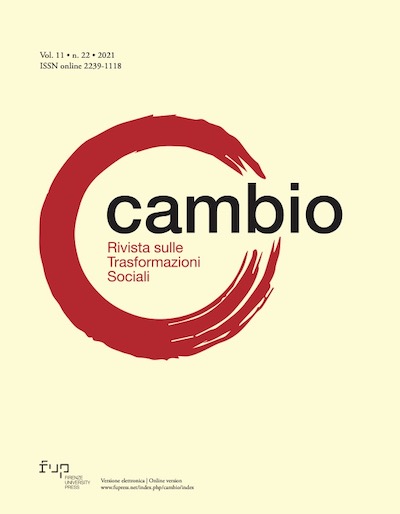Published 2022-08-03
Keywords
- smart working,
- remote working,
- COVID-19,
- work organization,
- social consequences of lockdown measures
How to Cite
Abstract
Remote work entered the lives of many workers since the first months of 2020, when the pandemic spread around the world. The use of remote work then gave rise to what has been defined as "a great social experiment". In the situation of general uncertainty that the pandemic has produced, the usual work regulation and negotiation processes in the workplace have been suspended and replaced by quick and one-sided decisions. The article, on the one hand, explores the modes and times with which organizational transformations have been absorbed by organizations and workers; on the other hand, it investigates the reactions of workers to the messages sent by their companies about the urgent reorganization imposed by the spread of pandemic. While government-level measures were often fragmented and difficult to understand, companies have often been providing a “filter to uncertainty”, through the reorganization of work and the introduction of rules for health safety. In our opinion this is the key to explain the rapidity of the adaptation observed in the transition and its substantial acceptance by the employees, who tended to give up not only conflict, but even “voice” strategies. The metaphor of war and of the presence of a common enemy, combined with the desire to feel useful, have pushed workers to do everything possible to enhance their contribution, including self-training and voluntary working overtime.


